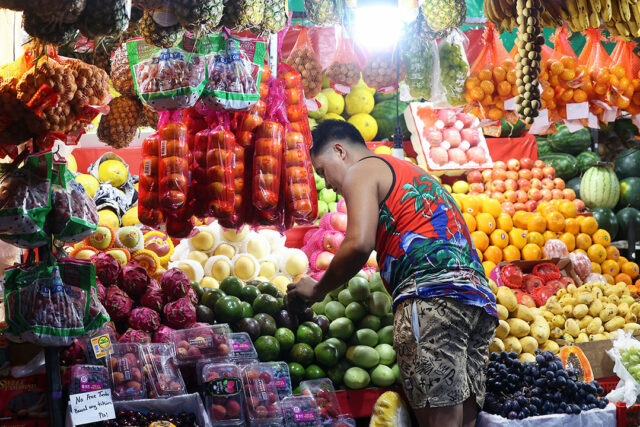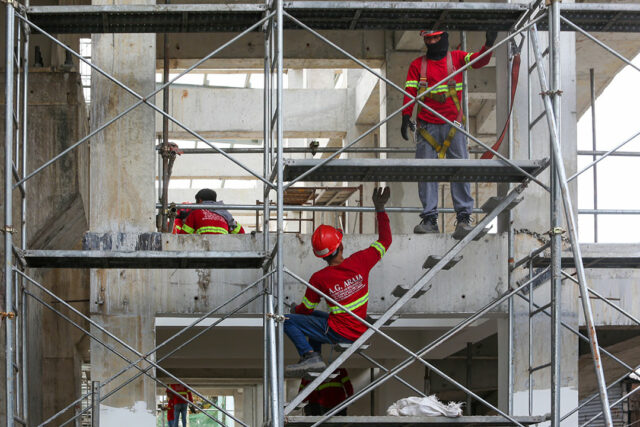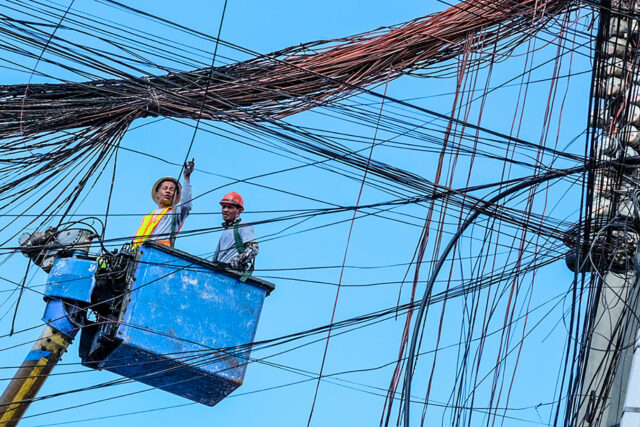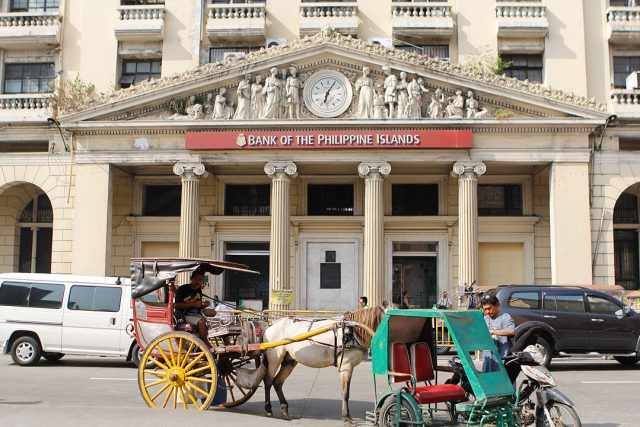PHL unlikely to reach the upper end of 2025 target
By Aubrey Rose A. Inosante, Reporter
THE PHILIPPINES may have difficulty achieving the upper end of the government’s 6-8% gross domestic product (GDP) growth target amid heightened global uncertainties this year.
Asked if the country could hit 8% growth this year, Finance Secretary Ralph G. Recto told BusinessWorld: “6-6.5% [growth] is doable for 2025.”
Mr. Recto, however, said the outlook will depend on “inflation, interest rates, and strength of US dollar.”
The Philippine economy expanded by 5.6% last year, slightly faster than 5.5% in 2023 but fell short of the government’s revised 6-6.5% target.
The National Economic and Development Authority earlier said the GDP growth was hampered by extreme weather events, geopolitical tensions, and subdued global demand — which is now considered as the “new normal.”
Multilateral lenders World Bank and the Asian Development Bank project the Philippines to grow by 6.1% and 6.2% in 2025.
In an e-mail interview with BusinessWorld, Ateneo School of Government Dean Philip Arnold “Randy” P. Tuaño said the Philippines will “face difficulty” meeting the 8% growth target.
“It was relatively easy to achieve a 7% to 8% growth in the 2022-2023 period as we have been coming from a low-income base during the pandemic,” Mr. Tuaño said.
“Even then, 5% to 6%, while a respectable rate of growth, would make it difficult to achieve significant growth in income among the middle class and vulnerable in the next few years,” he added.
HSBC economist for ASEAN Aris D. Dacanay said that achieving an 8% growth rate is possible, but “a tall order.”
He cited global and domestic headwinds, including a sluggish Chinese economy, tariff risks, and climate-related impacts on the agricultural sector.
“This isn’t to say the Philippines won’t grow. Growing by 6.3%, we expect it to be one of Asia’s top performers in 2025 with the business process outsourcing sector (BPO), digitalization, and household consumption — sectors of the economy that are not subject to tariff risks — leading the charge,” he told BusinessWorld via e-mail.
In a note, Citi downgraded its 2025 GDP forecast to 5.9%, from 6% previously, after the weaker-than-expected growth momentum in 2024.
“Still, recent activity data such as income remittances continue to suggest that domestic demand would remain well-supported. Commercial bank loans rose 11.1% year on year in November 2024 suggesting robust business activities and consumption growth… Furthermore, continued monetary easing and more moderate inflation are also expected to support domestic demand expansion in 2025,” Citi said.
MORE INVESTMENTS NEEDED
Mr. Recto said the upper end of the government’s target “can only be achieved if private investments double or triple.”
Department of Budget and Management (DBM) Principal Economist Joselito “Jojit” R. Basilio said the economy is likely to post 6-7% growth this year, although the upper end of the target “remains doable under certain circumstances.”
“Aside from the government’s continued ramping up of spending on public construction, recently approved PPPs (public-private partnership) projects should complement the aggressive ‘Build Better More’ program,” he said.
“But there are conditions that can push the economy to do more and grow by 7% to 8% in 2025,” he added.
Rizal Commercial Banking Corp. Chief Economist Michael L. Ricafort said hitting the upper end of the 2025 goal is a “long shot, realistically.”
“This would require more foreign and local investments, more tourists especially foreign, more merchandise exports that all generate more jobs and other economic opportunities that lead to higher per capita income,” he said.
To drive faster growth this year, Mr. Tuaño said the government should accelerate infrastructure projects and push regulatory reforms to boost investments, especially outside of the main urban centers.
The government should also invest in human resource development via education, healthcare, technological upgrading, and boost small businesses to drive growth, he said.
“Some potential opportunities for growth include stronger consumption driven by remittance growth and continuous expansion of services, and also the rebound of tourism,” Mr. Tuaño said.
Citi said continued policy easing by the Bangko Sentral ng Pilipinas will support GDP growth this year. It maintained its expectation for a 25-basis-point (bp) rate cut this month.
“We expect the BSP to cut again in June and August, skipping April, partly to ascertain a few outcomes, including the potential increase of US tariffs and possible impact on global trade and US dollar-Philippine peso, the Fed’s rate cut decisions, the Philippines’ midterm election campaigning’s potential positive impact on domestic demand (although investment may see some delays from the 45-day pre-election ban on project disbursement) etc,” Citi said.
The Monetary Board has cut benchmark borrowing costs by a total of 75 bps since it began its easing cycle in August 2024, bringing its key rate to 5.75%.
Mr. Basilio said private consumption is expected to recover strongly, increasing by 6% in 2025 due to stabilized inflation and lower interest rates.
“The domestic demand is also anticipated to shift from ‘being subdued’ to one of gaining its momentum,” he said.
Mr. Basilio also noted that agricultural output is anticipated to make “a strong rebound” this year.
However, Mr. Dacanay said relying on fiscal and monetary policy to boost growth will be difficult.
“The government is in the midst of consolidating its fiscal resources from the pandemic, while the Federal Reserve puts a floor under how much the Bangko Sentral ng Pilipinas can cut policy rates to boost growth,” Mr. Dacanay said.
RISKS TO THE OUTLOOK
Analysts cited geopolitical tensions and uncertainty as one of the downside risks to the Philippines’ economic outlook.
“Downside risks include geopolitical risks and uncertainties in global trade markets, considering further that goods export sector performance has been relatively anemic,” DBM’s Mr. Basilio said.
Mr. Tuaño said other downside risks include slower export growth due to “tariff escalation in the developed world… and natural disasters taking a toll on productive labor and capital.”
On the other hand, key upside risks include improved labor market conditions and election spending.
“For the current year, election spending is expected to result in increased economic activities, including advertising and campaign-related expenses in transport, hospitality, retail trade and others,” DBM’s Mr. Basilio said. — with inputs from Aaron Michael C. Sy













